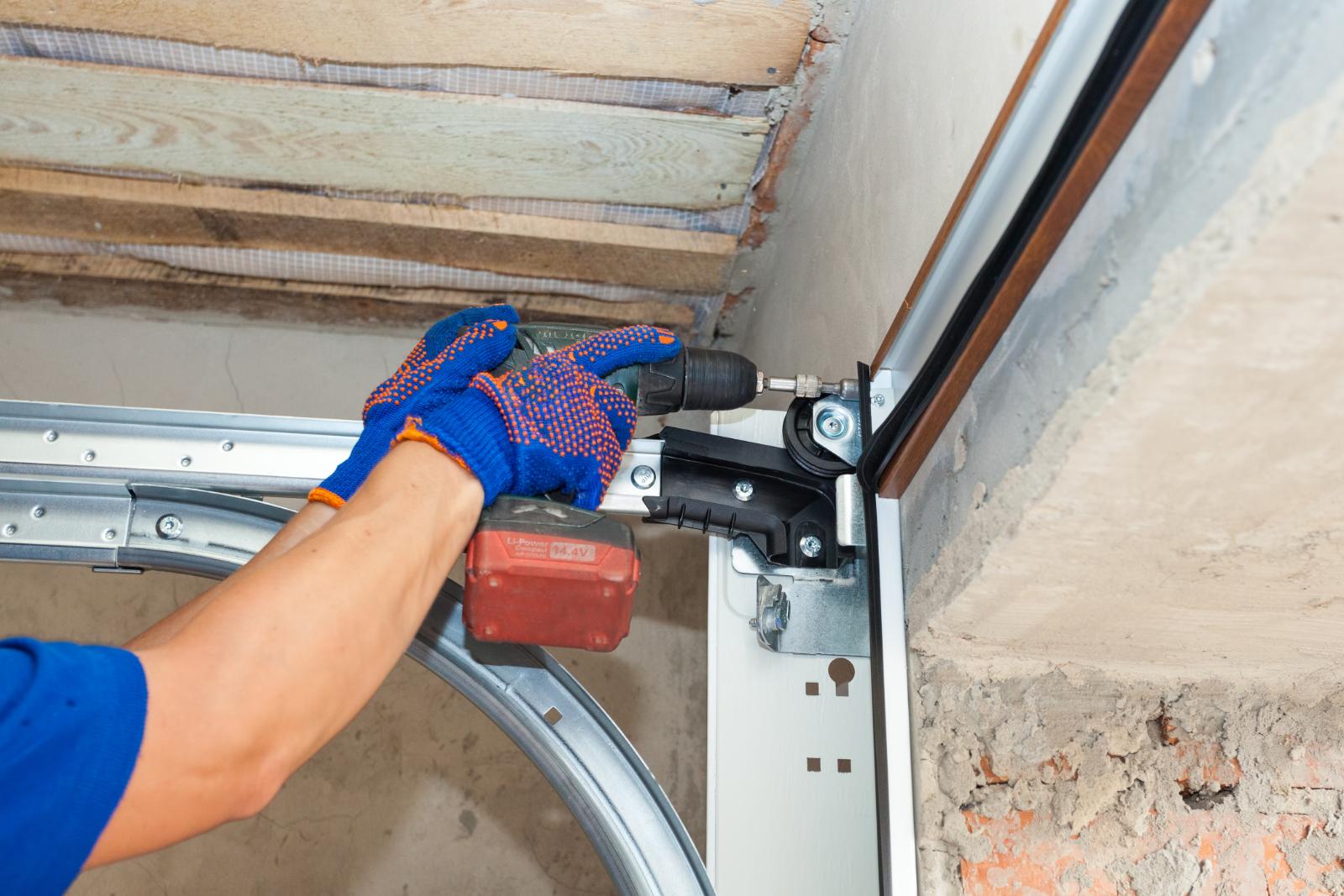
Contents
Maintaining your garage door isn’t just about aesthetics; it’s essential for safety and longevity. Regular check-ups can help you catch minor issues before they turn into costly repairs. Plus, taking on this task yourself can boost your confidence in your DIY skills. So, what should you look for during your inspection, and how can you effectively tackle common problems? Understanding these aspects can make all the difference for your home.
Key Takeaways
- DIY garage door maintenance helps homeowners save money by catching minor issues early, preventing costly repairs down the line.
- Regular inspections and upkeep extend the lifespan of the garage door, ensuring it remains functional for years.
- Performing maintenance enhances safety, reducing the risk of accidents caused by malfunctioning doors or components.
- A well-maintained garage door operates more efficiently, potentially lowering energy costs associated with frequent use.
- Engaging in DIY maintenance fosters personal satisfaction and confidence in home upkeep skills, empowering homeowners to tackle future projects.
Understanding the Importance of Regular Garage Door Maintenance
When you think about home maintenance, garage doors mightn’t be the first thing that comes to mind, but neglecting them can lead to costly repairs and safety hazards. Regular maintenance is crucial for guaranteeing your garage door functions smoothly and safely.
Establish a maintenance schedule to inspect components like springs, cables, and the opener. This helps catch minor issues before they escalate into bigger problems.
Don’t forget to prioritize safety precautions while performing maintenance. Always disconnect the power before working on your garage door, and verify it’s fully closed to prevent accidents.
Lubricating moving parts can reduce wear and tear and enhance performance. Checking the balance of your door helps avoid undue stress on the opener.
Common Garage Door Issues Homeowners Can Address
Although garage doors are often taken for granted, several common issues can arise that you can easily address. Understanding these problems can help you maintain your door’s functionality and guarantee your home stays secure.
| Issue | Solution |
|---|---|
| Misaligned sensors | Clean and reposition garage door sensors to guarantee they’re properly detecting obstructions. |
| Noisy operation | Lubricate rollers and hinges to reduce friction and noise. |
| Spring tension problems | Inspect springs for wear; if they’re too loose or tight, you may need professional help. |
| Door won’t close | Check for obstructions and guarantee the garage door sensors are aligned. |
| Slow response time | Replace worn-out or low batteries in your remote to improve responsiveness. |
Essential Tools for DIY Garage Door Maintenance
To keep your garage door in top shape, having the right tools on hand is essential for effective DIY maintenance. Start with a maintenance checklist to make certain you don’t miss any important tasks.
You’ll need a socket set for tightening bolts, a screwdriver for adjusting hinges, and a level to check alignment. A sturdy ladder is critical for reaching high areas safely, while a pair of safety glasses protects your eyes during repairs.
Don’t forget a spray lubricant to keep moving parts operating smoothly and a brush for cleaning tracks. A voltage tester is also necessary for confirming electrical components are safe before you start any work.
Step-by-Step Guide to Inspecting Your Garage Door
Before diving into maintenance tasks, it’s crucial to thoroughly inspect your garage door to identify any potential issues. Regular inspections guarantee garage door safety and prolong the life of your door. Use this inspection checklist to guide you:
| Inspection Area | What to Look For | Notes |
|---|---|---|
| Tracks | Check for dents or debris | Clean if necessary |
| Rollers | Look for wear or damage | Replace if needed |
| Cables | Inspect for fraying or rust | Tighten any loose cables |
| Hinges | Verify they’re lubricated | Apply grease if needed |
| Safety Sensors | Test functionality | Make sure they align properly |
Tips for Lubricating and Cleaning Garage Door Components
To keep your garage door functioning smoothly, you need to focus on essential lubrication points like the rollers, hinges, and tracks.
Regular cleaning techniques, such as wiping down surfaces and removing debris, can enhance the performance and longevity of your door.
Let’s explore how to effectively maintain these components for peak operation.
Essential Lubrication Points
Regular maintenance of your garage door hinges, rollers, and tracks can greatly extend its lifespan and improve performance.
Start by identifying the best lubrication types for each component. Use lithium grease for hinges and rollers, while silicone spray works wonders on tracks.
Create a maintenance schedule, aiming to lubricate every three to six months, depending on usage. When applying lubricant, make sure you wipe away any excess to prevent dirt buildup.
Don’t forget to check the weatherstripping too; a little silicone spray can keep it supple and effective.
Effective Cleaning Techniques
After taking care of lubrication, it’s important to address cleaning the garage door and its components to guarantee peak performance.
Start by gathering your cleaning supplies: a soft cloth, a mild detergent, and a vacuum with a brush attachment. Wipe down the door’s surface to remove dirt and debris, preventing rust and corrosion.
Pay special attention to the tracks; use the vacuum to eliminate dust and grime, ensuring smooth operation. For metal components, a light application of the detergent mixed with water works wonders.
Regularly incorporate this cleaning into your maintenance schedule—aim for at least every season. Keeping your garage door clean not only enhances its appearance but also extends its lifespan, fostering a sense of pride in your home.
Recognizing When to Call a Professional
While many garage door issues can be tackled with some DIY effort, knowing when to call a professional can save you time, frustration, and potential safety hazards.
Start by identifying warning signs like unusual noises, slow response times, or uneven movement. If you notice these, it’s essential to assess whether you’re equipped to handle the problem. Knowing your limits is key; some repairs require specialized skills and tools that might be beyond your reach.
For example, if the door’s alignment is off or the springs are damaged, it’s best to consult a professional. These components are under significant tension, and mishandling them can lead to serious injuries.
Additionally, if you’re unsure about electrical issues or have attempted a fix without success, don’t hesitate to reach out for expert help. This way, you guarantee your garage door operates safely and reliably, keeping your home secure and your peace of mind intact.
The Long-Term Benefits of DIY Maintenance for Homeowners
Taking the time to conduct DIY maintenance on your garage door not only helps prevent costly repairs but also strengthens your understanding of how your door functions. You’ll find that investing a little effort now pays off in the long run, leading to significant cost savings and an increased lifespan for your door.
| Benefit | Description |
|---|---|
| Cost Savings | Avoid expensive repairs by catching issues early. |
| Increased Lifespan | Regular maintenance extends the life of your garage door. |
| Enhanced Safety | Guarantees safe operation, reducing accidents. |
| Improved Efficiency | Keeps your door functioning smoothly, saving energy. |
| Personal Satisfaction | Gain confidence in your DIY skills and home upkeep. |
Summary
By taking the time for DIY garage door maintenance, you’re not just keeping your door functional; you’re building a protective barrier for your home, much like a knight polishing their armor before battle. Regular inspections and minor repairs can save you from major headaches down the line. Just as a well-tuned engine drives a car smoothly, a well-maintained garage door guarantees safe, reliable access to your home, enhancing both your security and peace of mind.
Recent Posts
3 Best Tips for Troubleshooting Garage Door Repairs
When your garage door isn’t functioning correctly, it can be frustrating and inconvenient. By focusing
Ultimate Guide to Residential Overhead Door Installation
When it comes to residential overhead door installation, making the right choices from the start
5 Expert Tips for Installing Residential Garage Doors
Installing a residential garage door might seem simple, but even small mistakes can lead to

